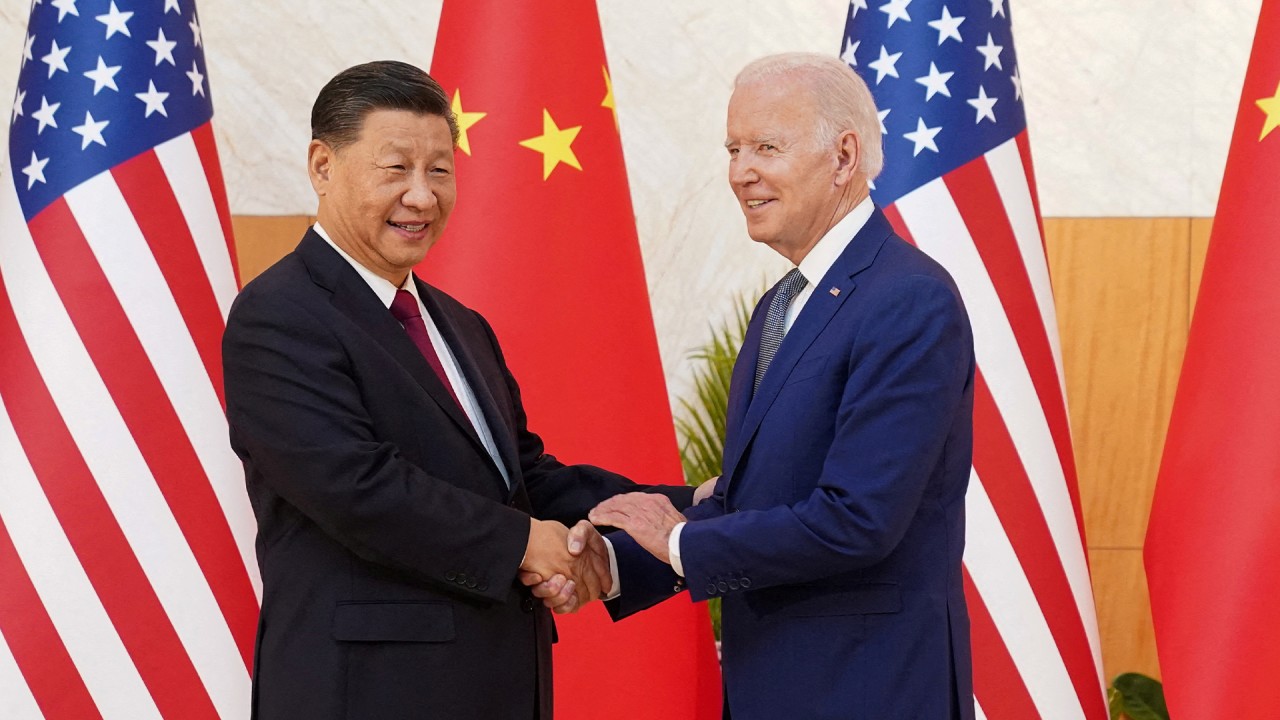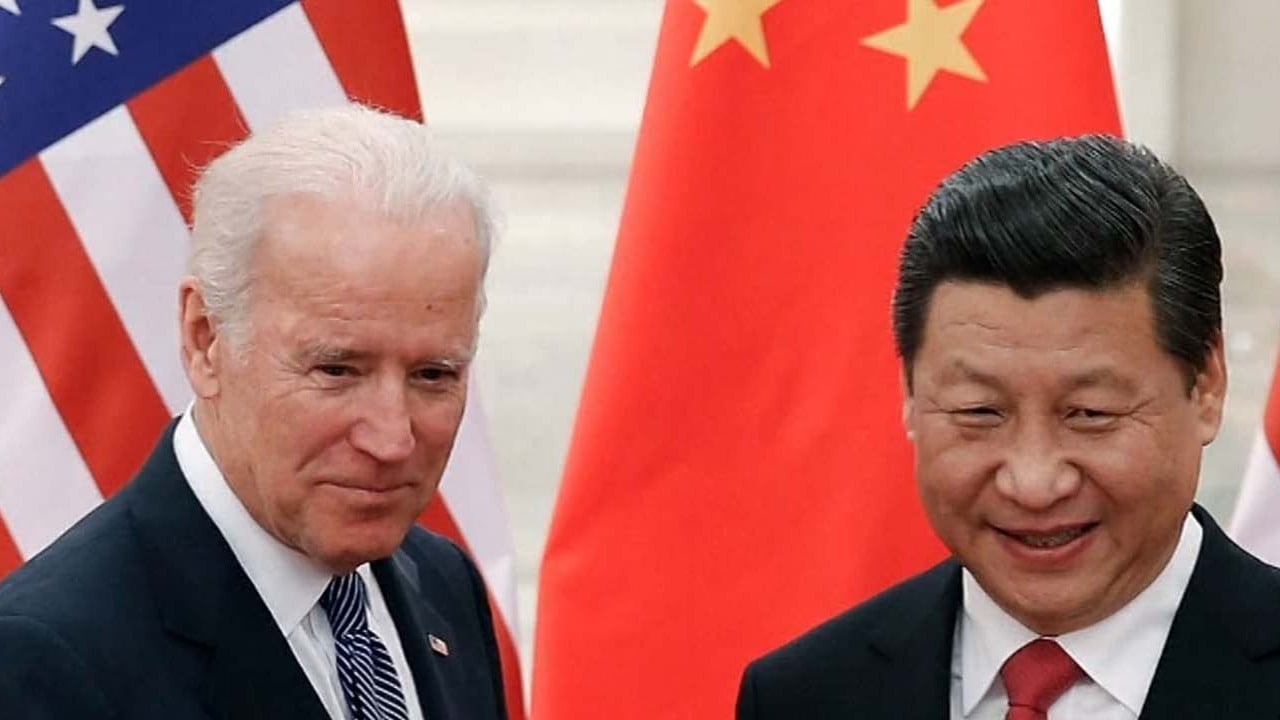
Xi-Biden summit revives hopes for stalled climate talks but no grand bargain, analysts say
- The channels of communication tipped to gradually reopen, with a Blinken trip to China on the horizon
- Climate envoys could also meet at COP27 but there is still pressure in the US for hawkishness
Amid a deepening ideological and geopolitical divide, joint pledges by Chinese and American leaders to promote cooperation on transnational challenges have raised hopes for the restoration of climate talks and other official dialogue Beijing halted three months ago.
Asian stocks in Hong Kong, Shanghai and Tokyo also climbed on Tuesday amid prospects of reduced US-China tensions.
Apart from customary smiles, handshakes and back-pats, the pair echoed each other in stressing the need for the rival powers to work together to cope with global and regional challenges.
The two leaders have had five video or phone calls since January 2021, but in his opening remarks, Xi told Biden that “none of them can really substitute for face-to-face exchanges”.
“China-US interactions should be defined by dialogue and win-win cooperation, not confrontation and zero-sum competition,” the official Chinese readout quoted him as saying.
According to Chinese Foreign Minister Wang Yi, who briefed Chinese state-controlled media after the meeting, Xi also said bilateral “differences should not be an obstacle to the development of Sino-US relations. Differences should be the driving force for exchanges and cooperation between the two countries. Cooperation requires a good atmosphere and a stable relationship.”
According to the White House, Biden and Xi agreed to “empower key senior officials to maintain communication” and to work on areas of potential cooperation, including climate change and global financial, health and food stability.
Both leaders “encouraged further progress in these existing mechanisms, including through joint working groups”, according to the White House.
The Chinese statement said that while diplomatic and financial teams would maintain regular dialogue on strategic, economic and trade issues, both countries would work together “for the success” of the ongoing United Nations COP27 climate talks in Egypt.
When asked if he would be meeting with China’s top climate official Xie Zhenhua, Kerry said: “I will meet with him sometime later. We’re able to talk, we’ll see what happens.”
Don’t weaponise food, energy security, China’s Xi Jinping’s tells G20
Wu Xinbo, dean of the Institute of International Studies at Fudan University, said China’s cooperation with the US was expected to gradually resume after the Xi-Biden meeting.
“We already see some engagement between Chinese and US diplomats during COP27. I believe cooperation on other key issues like anti-drug efforts and military-to-military talks will resume soon,” Wu said.
“But we need to note that bilateral cooperation on those issues is more important and urgent to the US than to China. That’s why China used them as sanctions to deter the US from further approaching Taiwan in August.”
Lu Xiang, a specialist on bilateral ties at the Chinese Academy of Social Sciences, also said there was a high chance that Beijing and Washington would reinstitute initiatives on different cooperation efforts soon.
“I believe we can expect the process of rebuilding political mutual trust between China and the US to restart from now,” he said.
“I believe US Secretary of State Antony Blinken will soon visit China and discuss cooperation on political and security issues. Also, [Treasury Secretary Janet] Yellen’s presence in the leaders’ talks shows the US’ attempt to seek economic cooperation with China, as the US is in the worst economic downturn since 2008,” Lu said.
Pang Zhongying, a professor of international affairs at Sichuan University, also said the summit was “a good starting point” for both sides to arrest their increasingly adversarial feud, as the world expected China and the US, the world’s top two carbon emitters, to work together at the Egyptian event.
“The US-China summit on the margins of the G20 marks China’s return to the global stage after nearly three years of Covid-19 disruptions. While it’s a relief for the world to see their face-to-face meeting eventually occur amid fears of a new cold war, it is premature to talk about substantive progress or even a grand bargain,” he said.
Beijing was among 14 countries that voted against a United Nations resolution on Monday calling for Russia to be held accountable for its conduct in Ukraine, a motion supported by 94 of the assembly’s 193 members, while 73 abstained.
George Magnus, a research associate at Oxford University’s China Centre, said it was good news that both sides saw it as appropriate to put a floor under the relationship and resume negotiations and communication in several areas, including climate change, food and energy security.
“There’s no reason why engagement in these matters should not happen even if it is only to understand irreconcilable points of view,” he said.
He noted Blinken’s visit to China scheduled for early next year would “probably be a waymarker to the timing of which negotiations resume and when”.
“But the floor is probably more glass than concrete, and we should remain alert to the risk it will crack or break,” Magnus said.
Gal Luft, co-director of the Washington-based Institute for the Analysis of Global Security, said the Xi-Biden summit was not a watershed moment in bilateral ties, although “it’s important in terms of demonstrating to the world the two countries can still engage with each other”.
“There was no agreement on any substantial issue and other than a visit to China by Blinken next year there was no deliverable,” he said.
Although the Democrats managed to retain control of the US Senate, the domestic political situation in the US would constrain Biden and prevent him from making any accommodation, according to Luft.
“The pressure for hawkishness will only intensify with both parties competing with each other on who is tougher on China,” he said.
Additional reporting by Stella Chen and Associated Press




